Search Results
Search
Filter results
Advanced Filters
Your search returned 883 Solutions
-
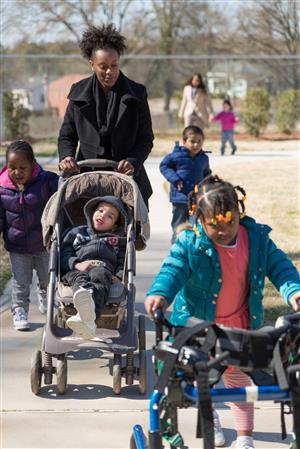
Promoting school readiness and a head start for all
The Head Start programme, founded in 1965, is the largest US-federal programme to deliver high-quality early learning opportunities to low- income children under five. Since 1972 the programme at least 10% of its enrolment opportunities have to be reserved for children with disabilities. In 2014, 12.2% of enrolees were children with disabilities.
US Department of Health and Human Services, HEAD START PROGRAMME OF 1965, United States of America -
Inclusive Education
rolled out throughout Ghana
Ghana's inclusive education policy and a comprehensive implementation plan (2015 to 2019) have led to the nationwide introduction of inclusive education. The programme started in 2009, by 2011 a total of 529 schools were participating and 1,322 teachers and specialists from the Ghanaian Education Service were trained.
Ghana Education Service, Special Education Division, Inclusive Education Policy, Ghana -
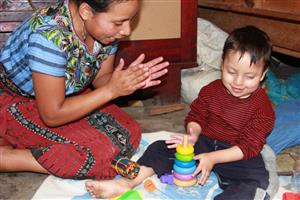
Comprehensive Inclusive Education for indigenous communities
ADISA is an NGO providing community-based Inclusive Education to children with disabilities from the indigenous community of Santiago Atitlán, Guatemala. The integrated programme involves teachers, parents, students and the community. The annual cost fort he programme is approximately USD 60,000.
ADISA - Association of Parents and Friends of People with Disabilities, Inclusive Education Programme, Guatemala -
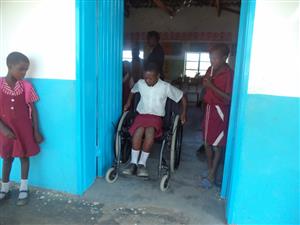
Integrating Inclusive Education in local communities in Zimbabwe
The project’s two model schools have a total enrolment of 738 children, including 85 with disabilities. 7 teachers were trained in sign language and Inclusive Education issues, as well as 14 school development committee members. Some 2,000 community members were informed on Inclusive Education through awareness campaigns.
Jairos Jiri Association, Zimbabwe -
Community Based Inclusive Development promoting Inclusive Education in Zanzibar
The project focuses on the training of teachers in inclusive methods and intervention, as well as on fostering greater community awareness by working with parents and administrators. The project has been implemented in three of Zanzibar’s eleven districts, and in 2018 more than 4,300 children with disabilities were enrolled.
MECP-Z - The Madrasa Early Childhood Programme Zanzibar, School Enrolment, Tanzania -
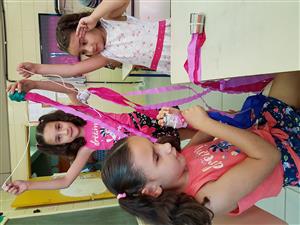
Universal design-based practices for public early childhood education
The project promotes the use of accessible and inclusive teaching methods in public pre-school education based on the principles of Universal Design. Educators and families experience its theory and methods in the form of trainings and workshops, teachers also receive practical support in the classroom.
Mais Diferencas - Inclusive Education and Culture, Projeto Brincar, Brazil -
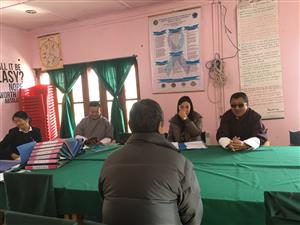
A nationwide strategy to fight mental health issues
Implementation starts with visits by a mental health service team to community leaders, local health care personnel, as well as to traditional healers to discuss existing practices and to gain their cooperation. This is followed by education and training to introduce modern mental health concepts and their advantages.
Government of Bhutan, National Mental Health Programme, Bhutan -
Funding for running for an elected office
The Access to Elected Office for Disabled People Fund, established in 2012, offers individual grants to persons with disabilities who wish to put themselves forward as a candidate or for running their election campaign, but who incur additional costs associated with their disability. As of 2014 the Fund had supported 50 candidates.
UK Government Equalities Office, ACCESS TO ELECTED OFFICE FOR DISABLED PEOPLE FUND, United Kingdom -
An Accessibility Programme for Electoral Processes
To make elections more accessible, the programme includes measures such as by placing electoral wards in accessible buildings, providing electoral staff that can communicate in sign-language, electronic voting machines accessible for blind voters, and saving the parking spots closer to the voting facilities for persons with disabilities.
Superior Electoral Court of Brazil, Electoral Justice Accessibility Programme, Brazil -
Promoting Inclusive Sports in Schools
Working in close cooperation with the Special Olympics Austria, Inklusion Sport empowers youth and educators to promote social inclusion. Begun in 2004, they offer unified sport events, education and training in the Austrian state of Styria. Each year five physical education (PE) teachers receive training to become official advisers on inclusive sport.
Basic Initiative for Sports and Inclusion, Austria
- Page 1
- Page 2
- Page 3
- Page 4
- Page 5
- Page 6
- Page 7
- Page 8
- Page 9
- Page 10
- Page 11
- Page 12
- Page 13
- Page 14
- Page 15
- Page 16
- Page 17
- Page 18
- Page 19
- Page 20
- Page 21
- Page 22
- Page 23
- Page 24
- Page 25
- Page 26
- Page 27
- Page 28
- Page 29
- Page 30
- Page 31
- Page 32
- Page 33
- Page 34
- Page 35
- Page 36
- Page 37
- Page 38
- Page 39
- Page 40
- Page 41
- Page 42
- Page 43
- Page 44
- Page 45
- Page 46
- Page 47
- Page 48
- Page 49
- Page 50
- Page 51
- Page 52
- Page 53
- Page 54
- Page 55
- Page 56
- Page 57
- Page 58
- Page 59
- Page 60
- Page 61
- Page 62
- Page 63
- Page 64
- Page 65
- Page 66
- Page 67
- Page 68
- Page 69
- Page 70
- Page 71
- Page 72
- Page 73
- Page 74
- Page 75
- Page 76
- Page 77
- Page 78
- Page 79
- Page 80
- Page 81
- Page 82
- Page 83
- Page 84
- Page 85
- Page 86
- Page 87
- Page 88
- Page 89